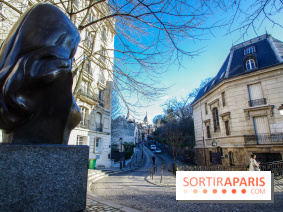Paris is a city packed with history, and the depths of the city are filled with memories that marked eras, especially the First and Second World War. In the early 1930’s, the Parisian authorities have decided to fit 40,000 underground shelters to protect the people if need be. Today, there are still plenty of unused bunkers under the city, under the Eiffel Tower, under the Gare de l'Est, and even under the Hôtel de Ville.
When heading to catch your train at the Gare de l’Est, what if you realize that a bunker stands beneath your feet? Former train checkpoint, it is still intact, set under the platforms 3 and 4. Built in 1939, the shelter used to provide secret communication with the other railway stations in Paris, and can house, in the event of a war, about 70 people. Barely used by the French, works yet have been finished in 1941 by the Germans. It is now owned by the SNCF, and you can visit them during the European Heritage Days. A place to remember if need be!
Even more unlikely, do you know the Eiffel Tower used to have its own bunker? The monument erected for the 1889 Paris World’s Fair hides under the 24.5-hectare of the Champ-de-Mars a bunker kept secret for over 70 years… Created in 1909, it used to be a 800sqm military building devoted to soldier’s underground work, making of Gustave Eiffel’s Tower an even more strategic location. Radiotelegraphic station, then area occupied by the Germans, the bunker has been used multiple times, before becoming offices. You can walk it during tours themed on the Eiffel Tower backstage.
Another iconic venue in the city, the Paris City Hall also has its very own underground shelter. This is a much more secure place that the previous one, and it has never sheltered anyone. As a matter of fact, it was built in 1937 after the First World War to prevent upcoming disasters. Between the two wars, the Ministry of Defense had 250 bunkers built under the administrative buildings. But the place eventually became a storage house.
The cellars of four-story buildings could also be considered as underground shelters, so was the underground metro that was used by thousands of Parisians.
Let us hope these shelters will not have to be used again, but this is a major part of the Parisian heritage, witnesses of the darkest hours of history.















